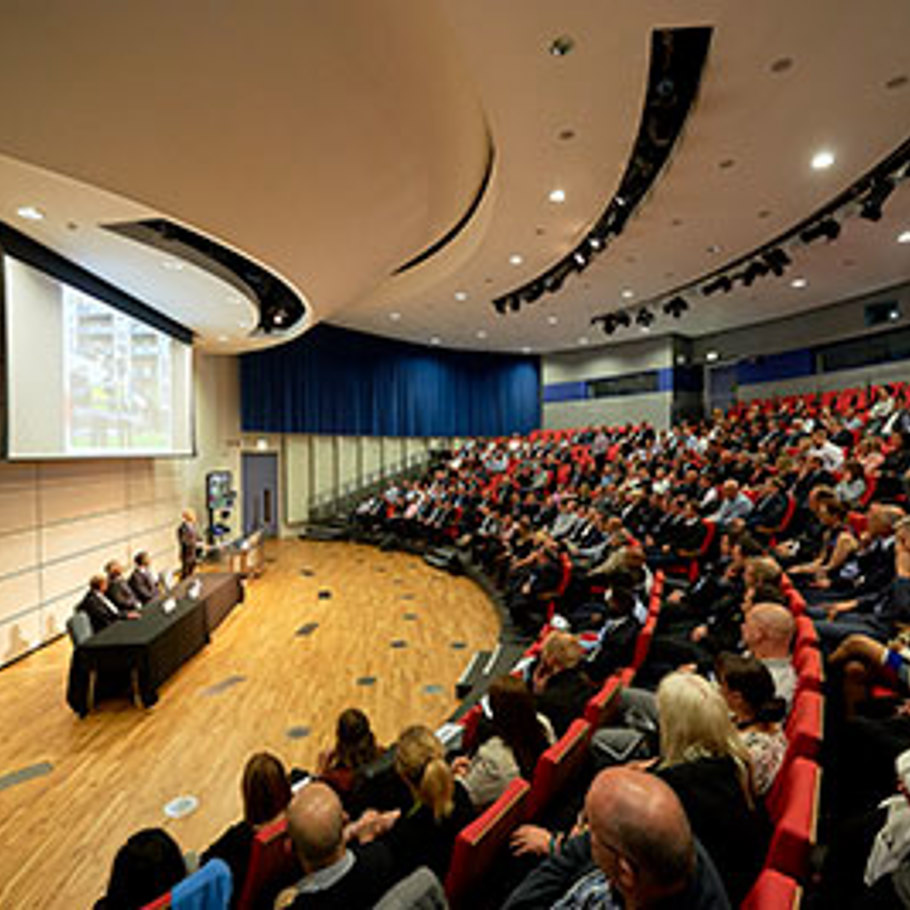At a central level, our Stakeholder Steering Committee reviews the interests of our employees, clients, shareholders, investors, suppliers and the communities we work in, and identifies ways in which we can create two-way communication between these groups and our Board to ensure their views have been considered in board discussions and decision-making.
Engagement is extensive and combines both central and local engagement across our stakeholder groups, as outlined below:
- Commitment to their health, safety and wellbeing.
- A compelling company vision.
- A culture of fair treatment, respect and integrity.
- Opportunities to develop professionally and personally.
- Attractive and fair rewards and benefits.
- Job security driven by Group performance.
We use the following mechanisms to outline our approach to employee priorities and gather feedback on our interactions:
- Face-to-face engagement through our Employee Forum, which is chaired by our Senior Independent Director; staff inductions with members of our Executive Board present; CEO roadshow; our annual Graduate Welcome event, director site and office visits; Performance Development Reviews/one-to-ones, toolbox talks and town halls.
- Emails from our CEO, video content from the Group and CEO, video calls, general email bulletins, our employee magazine, intranet, text messages and social platforms such as Yammer.
- Indirect engagement such as through papers to our Board detailing key data relating to our people including health and safety KPIs, employee churn levels, engagement indicators such as sickness leave, and training.
- Independent support such as access to our Employee Assistance Programme and whistleblowing hotline.
- Encouraging and analysing independent employee feedback via employee surveys or via sites such as Glassdoor and JobCrowd.
- Ability to deliver, and financial stability.
- Health, safety and wellbeing.
- Cost, value, quality and service.
- Collaborative approach.
- Achieving environmental and sustainability targets.
We use the following mechanisms to outline our approach to client priorities and gather feedback on our interactions:
- Direct engagement through face-to-face, video or telephone client meetings; high-quality bid submissions, contract negotiation and management; client satisfaction surveys; site tours; business development activities such as attendance at exhibitions and Meet the Buyer events.
- Indirect engagement such as accreditation to ISO 44001, project reports, marketing materials, an up-to-date website, press coverage and engaging in social media.
- Project performance feedback.
- Health, safety and wellbeing.
- Pipeline of work.
- Fair treatment and prompt payment.
- Access to resources.
- Collaborative relationships.
We use the following mechanisms to outline our approach to supply chain priorities and gather feedback on our interactions:
- Direct engagement through Meet the Buyer events; workshops; face-to-face, video or telephone meetings; contract negotiation and management and toolbox talks.
- Creating mutually-beneficial relationships through our Advantage through Alignment programme.
- Indirect engagement such as via trade associations, project reports, an up-to-date website, press coverage, engaging in social media and involvement in the Considerate Constructors Scheme.
The Group’s shares are owned by a wide range of institutional and individual shareholders, with no shareholder having a majority holding or significant influence over the Group. As a result, no situations arise in which any shareholders can be treated differently, ensuring fair treatment for all. The Group responds to all shareholder requests.
- Strategy and progress.
- Financial performance and trading.
- Dividend policy.
- Market trends and impact of Government policy.
- Corporate governance.
- Reputation and culture.
- Remuneration and share schemes.
- Risks to the business.
- Succession planning.
- ESG matters.
We use the following mechanisms to outline our approach to shareholder priorities and gather feedback on our interactions:
- Direct engagement through investor roadshows; face-to-face, video or telephone communications; Capital Markets Days, results presentations and webcasts; analyst briefings; AGMs; our Annual Report; consultations and Regulatory News Service announcements.
- Indirect engagement such as an up-to-date website, press coverage, engaging in social media, trading updates; corporate and financial videos and contributions to investor decision-making resources.
- Disruption to local services/environment.
- Contribution to local economy (local labour) and supporting local causes.
- High-quality buildings and infrastructure.
- Environmental concerns.
- Direct engagement such as through our membership of the Considerate Constructors Scheme, local newsletters, town hall meetings and exhibitions, school and college visits, site tours, Open Doors and local community engagement plans.
- Indirect engagement such as an up-to-date website, press coverage and engaging in social media.
The Directors gather stakeholder views through both direct and indirect engagement.
The Board, and in particular the Chief Executive and Finance Director, lead our shareholder engagement activities, as described in the shareholder relations section.
The Board also engages directly with employees through the Employee Forum, which is chaired by our Senior Independent Director, Terry Miller.
The Board also established a Stakeholder Steering Committee in 2019. This is a Boardlevel Committee, chaired by Terry Miller, whose purpose is to review and oversee the Group’s relationships with its key stakeholders, identify ways to create two-way communication between stakeholders and the Board and ensure their views are considered in Board discussions and decisions. The Committee met twice during the year.
The Board is acutely aware of the need to maintain high standards of business conduct.
The Group has a strong ethical culture, underpinned by our values, policies and our Code of Conduct, all of which are endorsed by the Board. The Code of Conduct sets out the ethical standards everyone in Galliford Try must adhere to and provides a framework to ensure we always behave in a way that reflects our values. The Group also has specific policies and procedures to prevent bribery and corruption.








